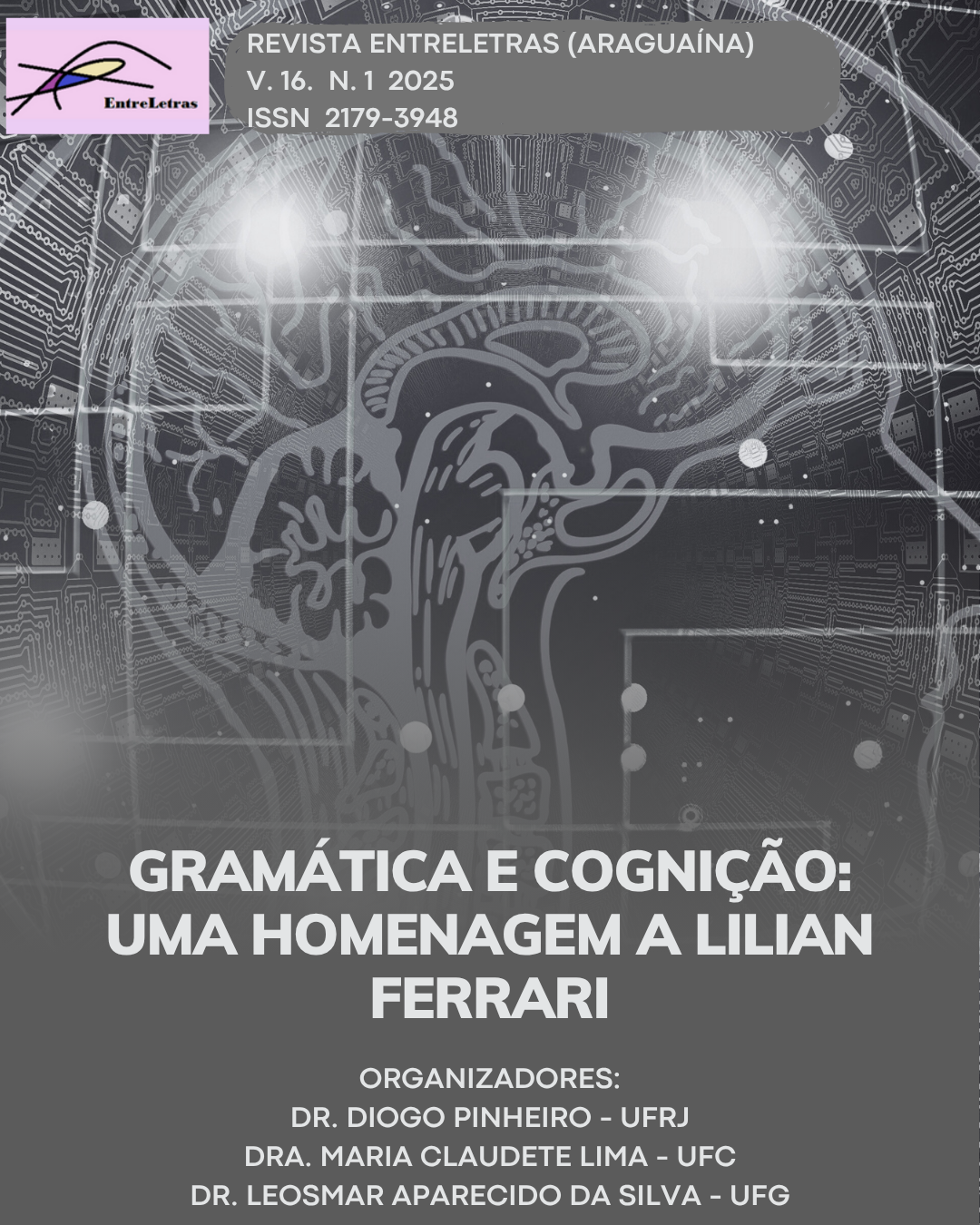METÁFORAS CONCEPTUAIS E IDEOLOGIAS NAS CHARGES COM TEMÁTICA DA COVID-19
UMA ABORDAGEM COGNITIVA E MULTIMODAL
DOI :
https://doi.org/10.70860/ufnt.entreletras.e19462Mots-clés :
Metáfora Conceptual, Charges, COVID-19, Multimodalidade, IdeologiaRésumé
Este estudo qualitativo, ancorado na Teoria da Metáfora Conceptual (Lakoff; Johnson, 1980), examina os domínios-fonte de metáforas em charges sobre a COVID-19. Articula-se com a Análise Crítica do Discurso (Fairclough, 2003) e a Análise de Discurso (Pêcheux, 2015), investigando como a multimodalidade dessas peças constrói discursos ideológicos. O foco recai sobre as metáforas DOENÇA É PESSOA e DOENÇA É LUTA, com seus desdobramentos, que moldam percepções públicas. Conclui-se que as charges não apenas refletem, mas também questionam e legitimam ideologias acerca da pandemia.
Téléchargements
Références
DEIGNAN, Alice. The evaluative properties of metaphor. In: LOW, Graham; TODD, Zazie; DEIGNAN, Alice; CAMERON, Lynne. Researching and Applying Metaphor in the Real World. Amsterdam: John Benjamins Publishing Company, 2010. p. 357-373.
FAIRCLOUGH, Norman. Discurso e mudança social. Brasília: Universidade de Brasília, 2003.
FAIRCLOUGH, Norman. Introdução: a natureza do discurso político. In: FAIRCLOUGH, Norman. Discurso e mudança social. Brasília: Editora da UnB, 1992. p. 7-26.
FORCEVILLE, Charles. Visual and Multimodal Communication: Applying the Relevance Principle. New York: Oxford University Press, 2020.
KRESS, Gunther; VAN LEEUWEN, Theo. Reading Images: The Grammar of Visual Design. 2. ed. London/New York: Routledge, 2006.
LAKOFF, George; JOHNSON, Mark. Metaphors we live by. Chicago: University of Chicago Press, 1980.
ORLANDI, Eni. Discurso em Análise: sujeito, sentido, ideologia. Campinas: Pontes, 2012.
PÊCHEUX, Michel. Análise de Discurso: Michel Pechêux – Textos selecionados: Eni Puccinelli Orlandi. 4. ed. Campinas: Pontes, 2015.
Téléchargements
Publié-e
Comment citer
Numéro
Rubrique
Licence
© EntreLetras 2025

Cette œuvre est sous licence Creative Commons Attribution 4.0 International.
Os autores mantêm os direitos autorais e concedem à revista o direito de primeira publicação, com o trabalho simultaneamente licenciado sob a Creative Commons 4.0 que permite o compartilhamento do trabalho com reconhecimento da autoria do trabalho e publicação inicial nesta revista.
Os autores têm autorização para assumir contratos adicionais separadamente, para distribuição não-exclusiva da versão do trabalho publicada nesta revista (ex.: publicar em repositório institucional ou como capítulo de livro), com reconhecimento de autoria e publicação inicial nesta revista.










